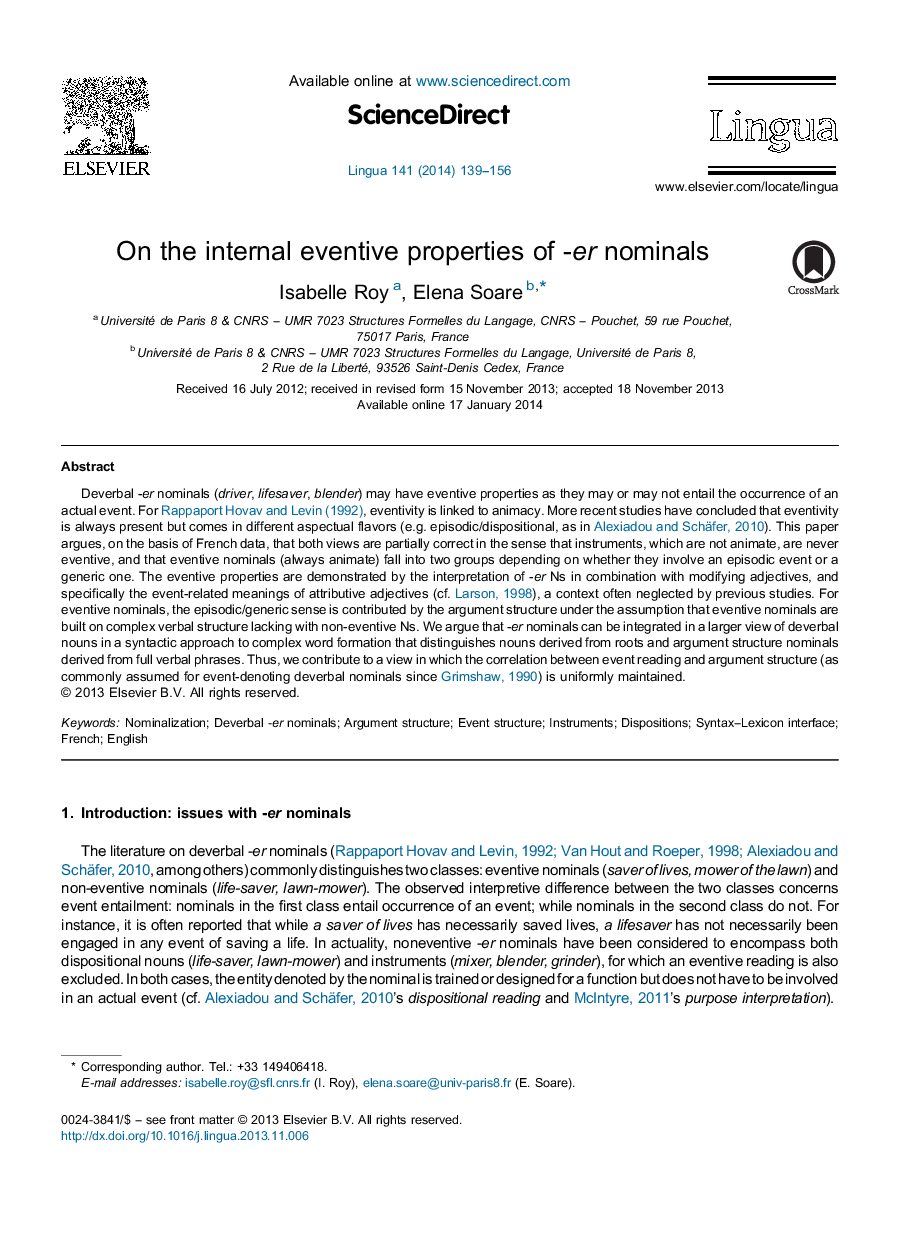| کد مقاله | کد نشریه | سال انتشار | مقاله انگلیسی | نسخه تمام متن |
|---|---|---|---|---|
| 935554 | 1475067 | 2014 | 18 صفحه PDF | دانلود رایگان |

• -Er deverbal Ns are analyzed as derived either from a verbal base or from a root.
• A typology of -er Ns including episodic/dispositional/instrument Ns is proposed.
• Internal event properties of -er Ns are demonstrated with adjectival modification.
• The correlation between event reading and argument structure is retained.
• (Non)specificity in internal arguments leads to an underlying episodic/generic event.
Deverbal -er nominals (driver, lifesaver, blender) may have eventive properties as they may or may not entail the occurrence of an actual event. For Rappaport Hovav and Levin (1992), eventivity is linked to animacy. More recent studies have concluded that eventivity is always present but comes in different aspectual flavors (e.g. episodic/dispositional, as in Alexiadou and Schäfer, 2010). This paper argues, on the basis of French data, that both views are partially correct in the sense that instruments, which are not animate, are never eventive, and that eventive nominals (always animate) fall into two groups depending on whether they involve an episodic event or a generic one. The eventive properties are demonstrated by the interpretation of -er Ns in combination with modifying adjectives, and specifically the event-related meanings of attributive adjectives (cf. Larson, 1998), a context often neglected by previous studies. For eventive nominals, the episodic/generic sense is contributed by the argument structure under the assumption that eventive nominals are built on complex verbal structure lacking with non-eventive Ns. We argue that -er nominals can be integrated in a larger view of deverbal nouns in a syntactic approach to complex word formation that distinguishes nouns derived from roots and argument structure nominals derived from full verbal phrases. Thus, we contribute to a view in which the correlation between event reading and argument structure (as commonly assumed for event-denoting deverbal nominals since Grimshaw, 1990) is uniformly maintained.
Journal: Lingua - Volume 141, March 2014, Pages 139–156